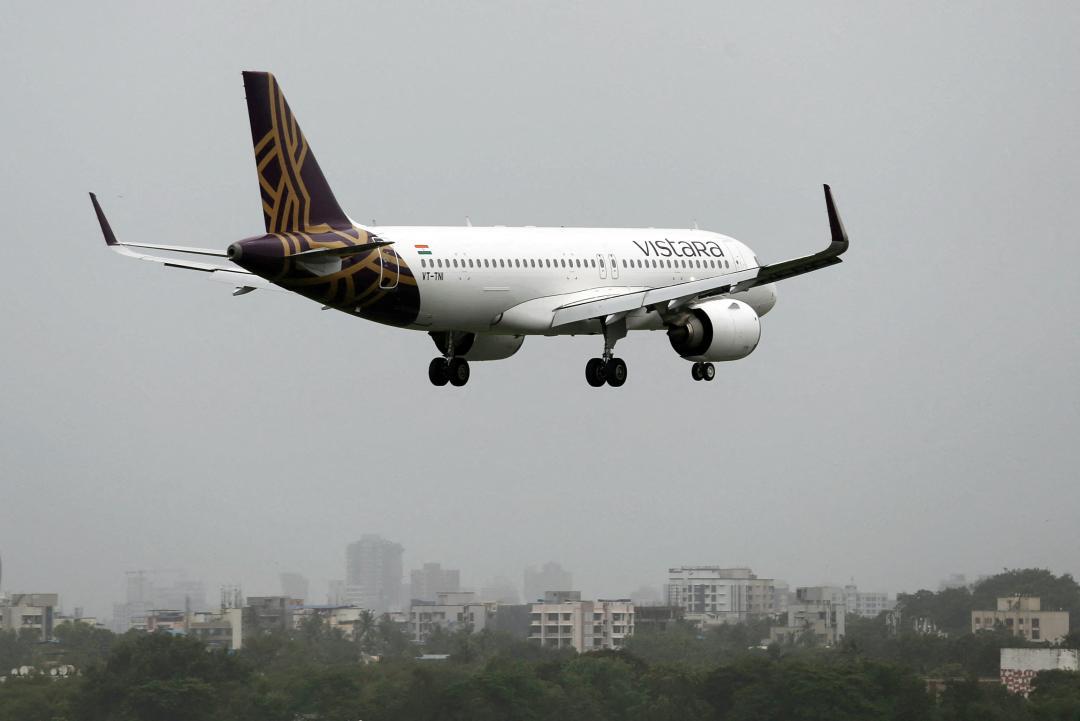Vistara Faces Backlash for Denying Pilot’s Leave Request Amidst Sick Mother’s Health Crisis

Vistara Faces Backlash for Denying Pilot’s Leave Request Amidst Sick Mother’s Health Crisis
In a recent incident that has sparked outrage and debate across social media platforms, Air Vistara, one of India’s prominent airlines, found itself under scrutiny for denying emergency leave to a pilot seeking time off to attend to their ailing mother’s health check-up. The controversy escalated when the email exchange between the pilot and the airline’s management surfaced online, revealing a seemingly callous response from Vistara, which suggested the pilot should reschedule the appointment or rely on family and friends for assistance.
The incident unfolded when the pilot, whose identity has not been disclosed, submitted a formal request for three days of leave, well in advance, approximately eight days prior to the scheduled medical examination for their mother. However, to the pilot’s astonishment, their plea for leave was turned down by Vistara. The reason cited for this denial was the timing of the request, which, according to the airline, was too close to the intended leave period.
Vistara’s decision to deny the pilot’s leave request was met with a swift and passionate response from the public, both within and outside the aviation industry. Critics argued that the denial displayed a lack of empathy on the part of the airline, particularly given the pilot’s urgent family situation. As the story gained momentum on social media, Vistara felt compelled to respond.
In their official statement issued in the wake of mounting criticism, Vistara defended its decision by reiterating the timeline of the leave request. The airline contended that the pilot had requested the leave only eight days prior to the intended departure, which, according to their internal policies, did not meet the required notice period for such leave.
However, it is important to consider whether adherence to policy should always take precedence over exceptional circumstances, especially when it involves a critical family matter. This incident has reignited a broader discussion about the balance between corporate policies and compassionate decision-making, particularly in industries like aviation where strict guidelines often govern operations.
The situation has also raised questions about the responsibilities of employers towards their employees during personal crises. While companies have policies in place to manage leaves and work schedules, there is an ongoing debate about whether these policies should be more flexible when employees face unforeseen family emergencies.

Supporters of the pilot have argued that Vistara should have exercised greater empathy and discretion in this case. They point out that the pilot had followed the established process for requesting leave and had made every effort to notify the airline in advance. In such circumstances, they believe that exceptions to the standard policy could have been made.
In response to the controversy, Vistara’s public image took a hit, with many customers expressing their disappointment and outrage on social media. Airlines, like any other businesses, rely heavily on their reputation for customer satisfaction and care. The incident has called into question whether Vistara’s handling of this situation aligns with its commitment to customer-centric values.
This incident also draws attention to the broader issue of work-life balance in the aviation industry. Pilots, in particular, have demanding and unpredictable schedules, often spending extended periods away from their families. It highlights the need for airlines to be more considerate of the personal challenges their employees may face and to establish policies that strike a balance between operational efficiency and employee well-being.
The debate has extended beyond social media and public opinion, prompting some industry experts and labor organizations to weigh in. The Indian Commercial Pilots’ Association (ICPA), a union representing commercial pilots in India, issued a statement condemning Vistara’s decision and calling for greater understanding and compassion in such cases.
Sandeep Kapoor, the spokesperson for ICPA, stated, “While we understand the importance of maintaining operational schedules, there must be a human touch when it comes to granting leave during emergencies. Pilots and their families also go through challenging times, and airlines should consider these situations on a case-by-case basis.”

Kapoor’s statement reflects a sentiment shared by many who believe that airlines should adopt a more flexible approach to employee leave requests during emergencies, without compromising safety and operational integrity.
This incident serves as a reminder that corporate policies and decision-making processes should be periodically reviewed and adjusted to reflect the changing needs and expectations of both employees and customers. The aviation industry, known for its strict regulations and procedures, may find it particularly challenging to strike a balance between adherence to protocols and the human element.
As the public discourse on this issue continues, it remains to be seen whether Vistara will reevaluate its policies regarding employee leaves in emergencies. Many hope that this incident will lead to a broader industry-wide discussion on compassionate decision-making and the importance of employee well-being, especially in sectors where the human factor plays a critical role in ensuring safety and service quality.

In conclusion, the incident involving the denial of leave to a Vistara pilot for their sick mother’s check-up has ignited a passionate debate about the intersection of corporate policies and compassion in the aviation industry. While Vistara has defended its decision based on established policies, the incident has raised broader questions about the responsibilities of employers towards their employees during personal crises.
It has also prompted discussions about the need for greater flexibility in leave policies and the importance of maintaining a balance between operational efficiency and employee well-being. As the controversy continues to unfold, it underscores the importance of reevaluating and adapting corporate policies to meet the evolving needs and expectations of employees and customers alike.




